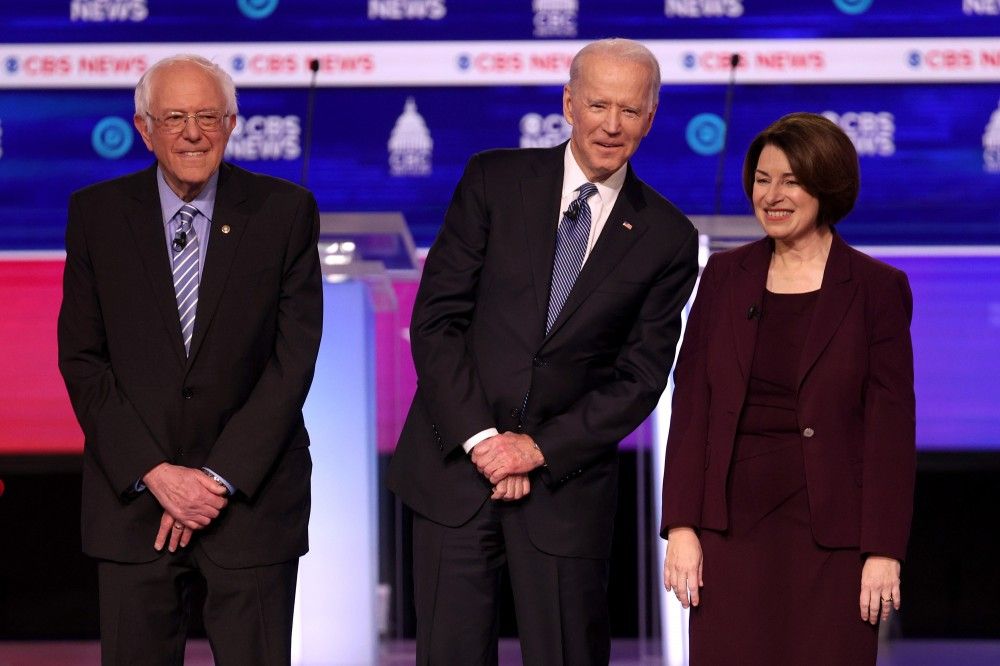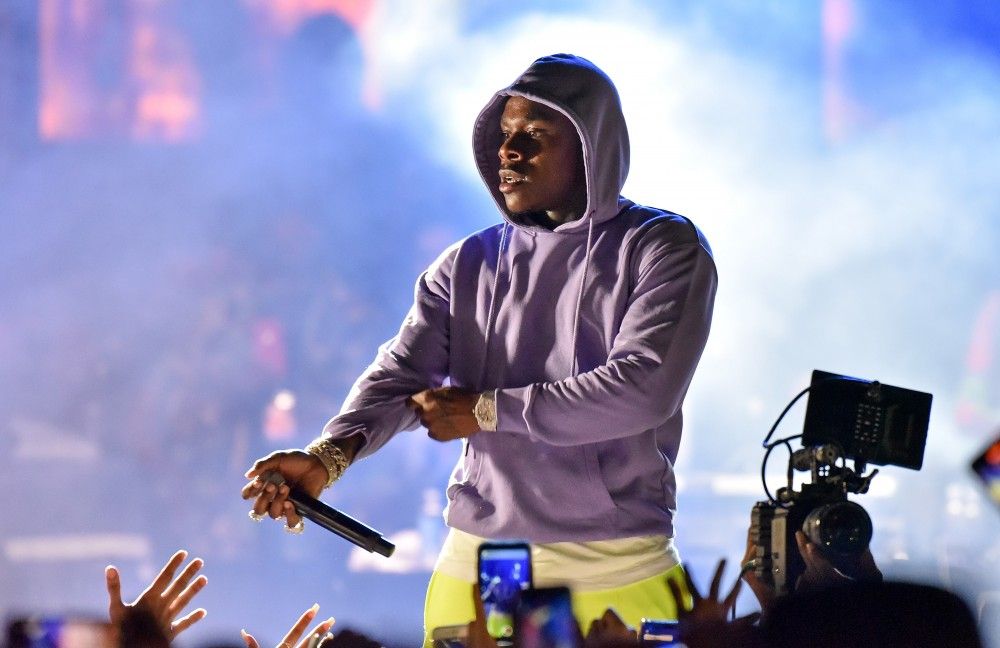
Operation Bernie Block Is in Full Effect
WASHINGTON — That sound you hear is the collective exhale of the Democratic establishment after ’s landslide victory in South Carolina.
The 2020 Democratic campaign has undergone a radical makeover in the 48 hours since Biden’s win. Senator Amy Klobuchar (D-Minn.), former South Bend Mayor Pete Buttigieg, and billionaire Tom Steyer hastily exited the race. Klobuchar and Buttigieg endorsed Biden on the eve of Super Tuesday, a potential inflection point in the race as 14 states and one territory cast their ballots. More than 1,300 delegates will be handed out, making it the biggest day of the nomination battle so far.
Biden’s victory unleashed a flood of endorsements by party fixtures and card-carrying members of the old guard — former Virginia governor and DNC chairman Terry McAuliffe, former DNC chairwoman Rep. Debbie Wasserman Schultz of Florida, former Sen. Barbara Boxer of California, along with dozens of mayors, state legislators, and sitting members of Congress. The New York Times reported Monday night that former Texas Congressman Beto O’Rourke would also endorse Biden less than 24 hours before voting began in the Texas primary.
The Democratic field is now down to five candidates: Biden, Sen. , Sen. , Mike Bloomberg, and Rep. Tulsi Gabbard. One way to organize the field is into two camps: the progressive flank (Sanders and Warren) and the moderate establishment flank (Biden and Bloomberg). Going into Super Tuesday, there is a leader and secondary figure in each flank — Sanders for the progressives and Biden for the moderates.
Klobuchar, Buttigieg, and O’Rourke’s endorsements of Biden is the clearest sign yet that the establishment plans to coalesce around Biden in hopes of denying Sanders the nomination. Call it Operation Bernie Block.
There’s a whiff of desperation to this move. It’s not hard to see why: If Sanders, who leads in the delegate count, performs well in delegate-rich states such as Texas and California, he might be unstoppable on his way to winning the nomination at the convention this summer.
That’s an unacceptable outcome to a powerful bloc of the Democratic Party. It’s why Buttigieg and Klobuchar have moved so quickly to endorse Biden. It’s why Sanders opponents started Super PAC called the Big Tent Project to run advertisements criticizing Sanders as a radical who would lose to Trump. (Sanders responded to the ads by saying, “The corporate elite is getting very nervous about our campaign.”)
The question at this stage is how Sanders and Biden grapple with the secondary figures on their respective flanks. On the progressive flank, Warren has no plans to drop out of the race anytime soon, according to a strategy memo released by her campaign on Sunday. Instead, she is betting that none of her opponents will win the 1,991 delegates needed to secure the nomination by the time of the Democratic convention in July. Even if Sanders or Biden were to win a plurality of the delegates, Warren’s campaign does not plan to concede and will fight for the nomination through the convention.
“In the road to the nomination, the Wisconsin primary is halftime, and the convention in Milwaukee is the final play,” her campaign manager, Roger Lau, wrote in the memo. “Our grassroots campaign is built to compete in every state and territory and ultimately prevail at the national convention in Milwaukee.”
There’s even more uncertainty on the moderate flank. Mike Bloomberg has poured more than half a billion dollars into his campaign, betting his candidacy on a strong Super Tuesday performance. Will his investment pay off? Or will it prove to be the most expensive flop in American politics?
If Bloomberg does well, then we’re in for a months-long battle between him and Biden for the support of the moderate flank. If Bloomberg tanks, then Biden can lay claim to the moderate flank and the race will likely come down to Biden versus Sanders.
Insider versus outsider. Establishment versus revolution. Sound familiar?



